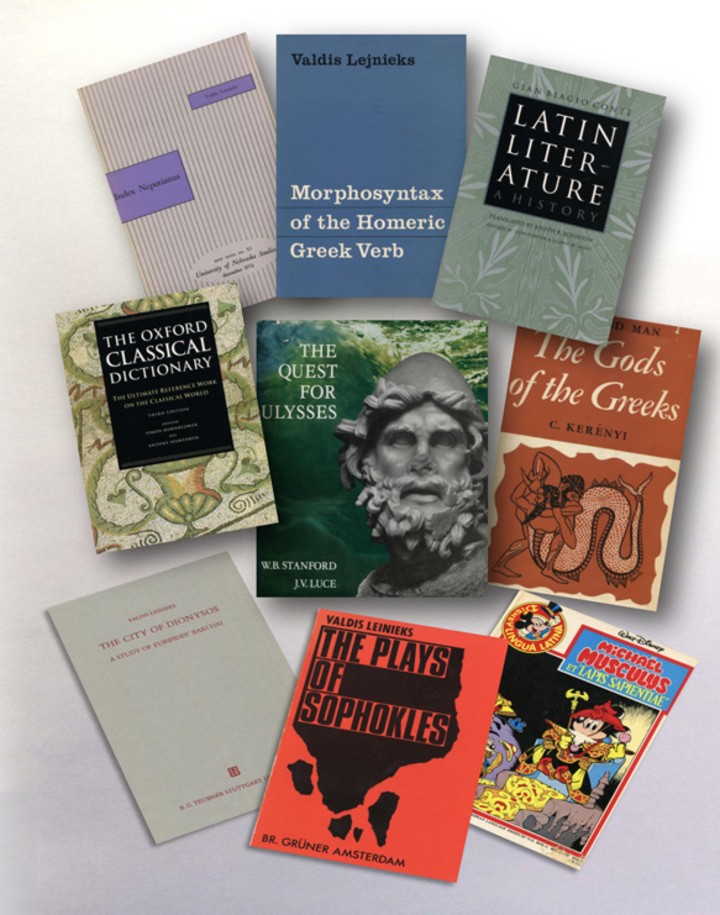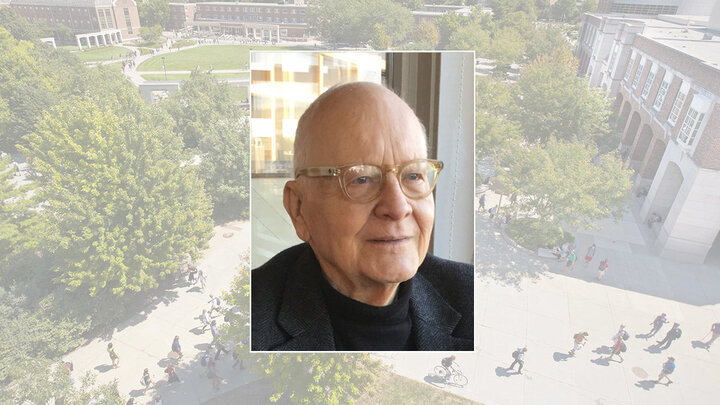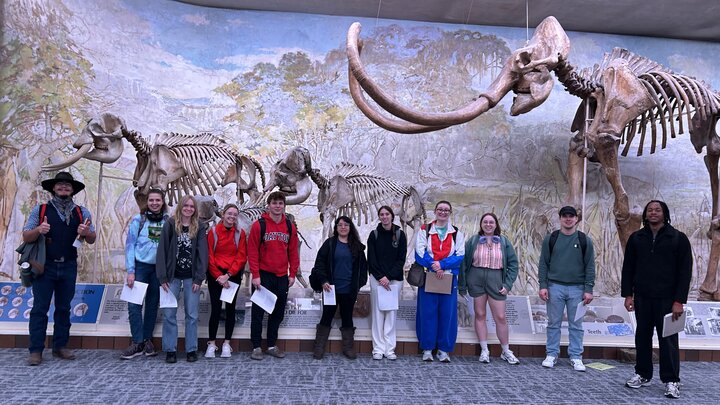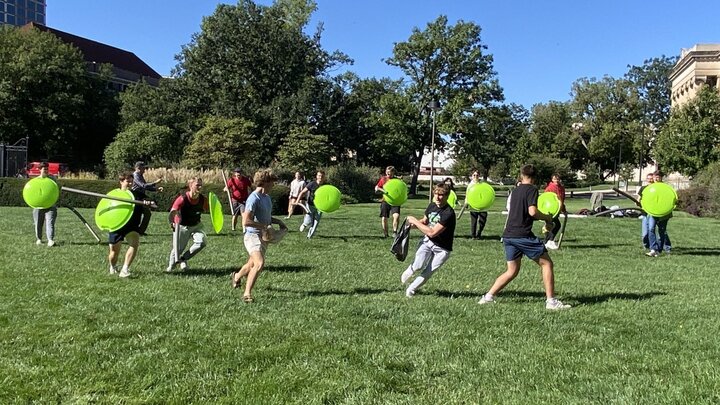Valdis Leinieks, emeritus professor of classics, died on 31 October 2019, aged 87. He was born in Liepaja, Latvia and moved to the United States following the Second World War. He received his B.A. at Cornell in 1955, an M.A. there in 1956, and a Ph.D. from Princeton University in 1962. He began work at the University of Nebraska in 1966 and became chair of the Department of Classics in 1967. Val's specialization was in Homer, Greek Tragedy, and Structural Linguistics, and he was a very prolific scholar, publishing Morphosyntax of the Homeric Greek Verb (1964), The Structure of Latin: An Introductory Text Based on Caesar and Cicero (1975; reprinted 1981), Index Nepotianus (1976), The Plays of Sophokles (1982), and The City of Dionysos (1996), as well as numerous articles and reviews.
As several of these titles indicate, Val's interest was in the structure and logic of language and the incorporation of linguistics into the analysis of classical Greek literature. His scholarship was dedicated to understanding how we use language, and how our use of it reflects our thought. He had a thorough understanding of classical Greek and Latin and developed recognized expertise in Sanskrit as well.
So complete was his dedication to the employment of his analytical method to the study of language that he developed a completely new way to learn Latin. The traditional approach to learning this language has not changed for several centuries; students today rely on a pedagogical model that takes grammar structure as self-explanatory, upon which one simply hangs a new set of rules and vocabulary. Val's method was to stimulate the student's appreciation for the logical commitments beneath the grammar and syntax of a language, thereby developing a greater sensitivity to the nuances the traditional approach fails to include. His Latin text was taught here for several decades, preparing Classics students for advanced study in a number of fields demanding a grasp of the logic underlying abstract thought.
When he retired, Val was working on a developed model of the structures found at the semantic level of natural language. This would have been the culmination of decades of work. Sadly, he was unable to see the project through for medical reasons. Val was known for his zeal for a sound, progressive, and energetic application to teaching, and he was famous for his willingness to devote time to recrafting lectures that he had already given many times before. He maintained a full teaching load throughout his decades of administrative responsibilities and was famous for the energy with which he pursued Socratic reasoning in the classroom. He was also famous for conducting classes off-campus, where the conversations could continue beyond the limitations imposed by time constraints and state liquor laws.
The years in which Val served as chair were filled with challenges and change. During these decades, the department developed a religious studies minor and managed to survive an administrative attempt to terminate the classics program altogether. He was famous for his professionalism and his good humor, his delight in the abstractions of theoretical linguistics and for his great admiration of Mickey Mouse.





